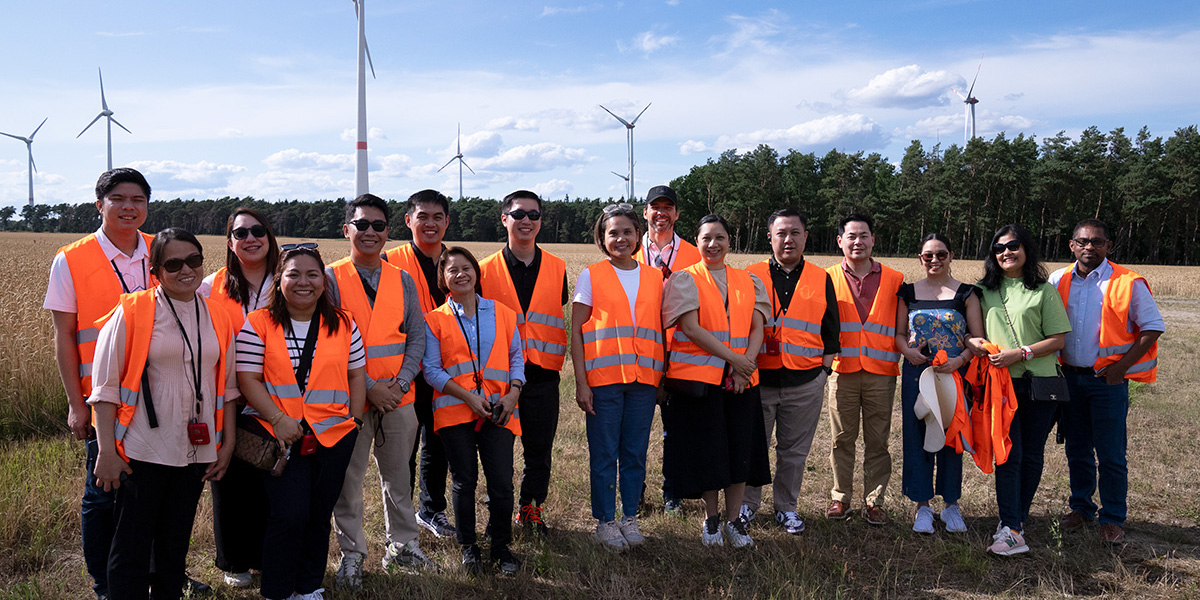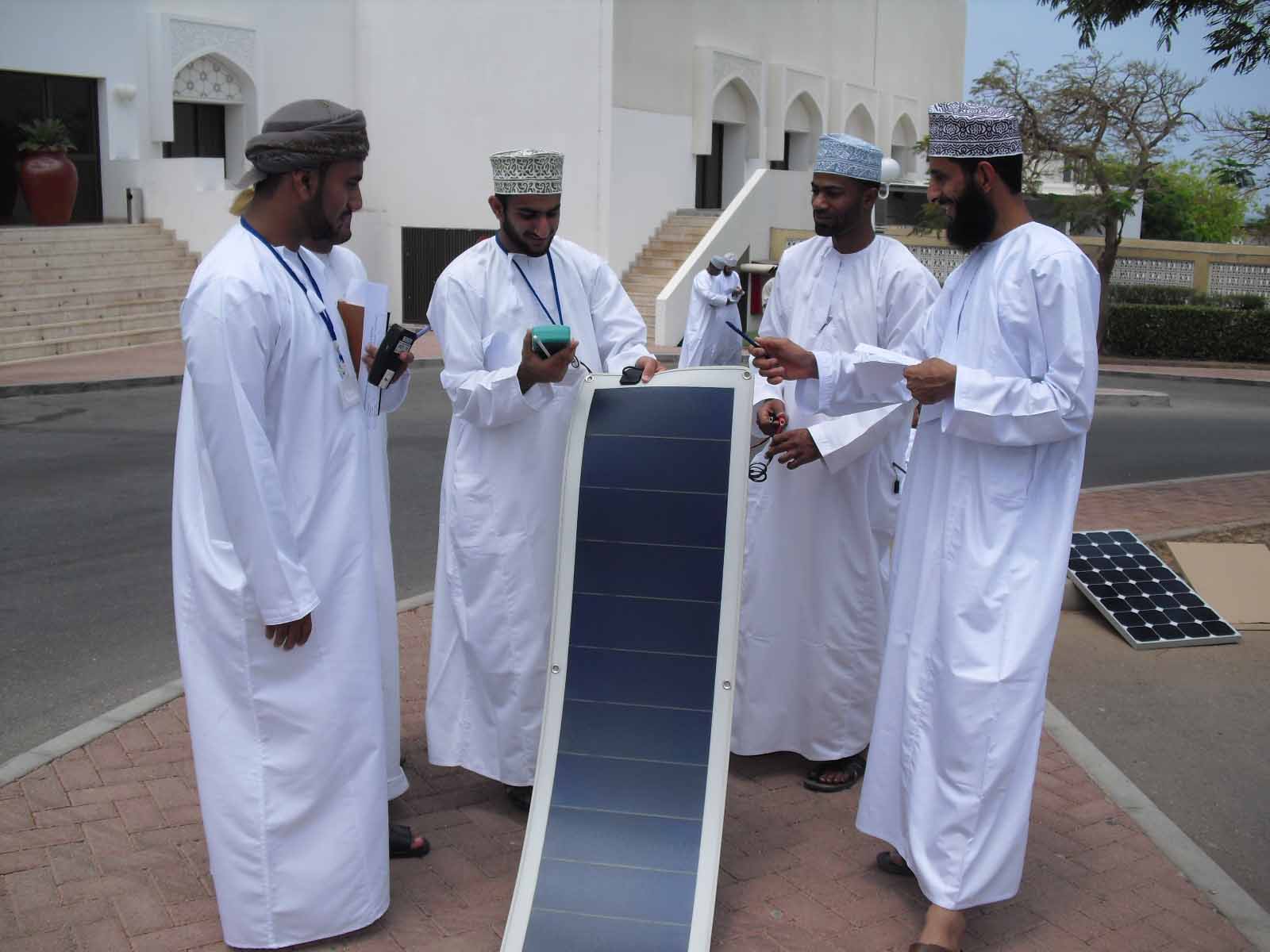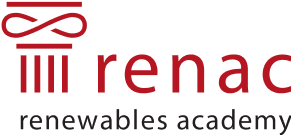This website uses cookies so that we can provide you with the best user experience possible. Cookie information is stored in your browser and performs functions such as recognising you when you return to our website and helping our team to understand which sections of the website you find most interesting and useful.
Customer-specific programmes

Job requirements in the green energy markets are complex and manifold. To ensure a company or organisation success, employees need extensive skills and up-to-date know-how.
RENAC customer-specific programmes offer the best way to meet participants’ training objectives:
- Analysis of participants’ capacity needs
- Selection of training contents and methods according to prior knowledge and needs
- The most suitable trainers
- Development of comprehensive materials with the highest quality standards
- Implementation of the training
Additionally, the training can be adjusted in duration and depth, organised for groups of various sizes and adapted to cover various technologies. Clients can determine when and where the training takes places.
Filter and search
Type
Name
Duration
Study time
Info
Content:
- Introduction to SME finance
- SME finance for Green Energy applications
- Challenges in SME lending in emerging markets
- SME lending process for RE and EE financing
Learning objectives:
After completion of this course, participants will be able to:
- explain typical determinants for SME definitions and why they differ in different economies,
- name challenges in SME lending,
- describe core aspects of the analysis of a green energy SME loan and
- list relevant items that define a green loan product for external and internal use.
Target group:
This training suits professionals in the financial sector involved or interested in RE project finance who
- want discuss why SMEs are relevant for economic growth and for financial institutions
- introduction, measurement equipment, solar radiation, sun positioning
hours
Content:
• Physical basics of solar energy
• Sun positioning
Learning objectives:
After completion of this course, participants will be able to:
- Describe the variability of the solar resource around the world and influencing factors
- Explain the difference between irradiation and irradiance and explain components of solar radiation
- Define important solar terms and the position of the sun in the sky
- Discover the importance of orientation and tilt of a solar array for optimising energy yield
Target group:
This training suits those who:
• Are interested in solar technologies
- Betz limit, introduction, power coefficient, power density, wind shear, wind speed units
hours
Content:
• Physical basics of wind energy
• Wind shear
Learning objectives:
After completing this online course, participants will be able to:
- Understand how the wind is created and explain the maincharacteristics of wind
- Be able to describe the factors affecting wind speed
Target group:
This course suits those who:
• Are interested in wind technologies
This course is also recommended for non-engineers.
- business models, investment criteria
hours
Content:
• Business model comparison
• Investment decisions
• Operation of assets
• Revenue streams
Learning objectives:
After completion of this course, participants will be able to:
- Identify typical sizes, roles and ownership structures of PV rooftop systems.
- Explain financing aspects for PV rooftop systems, including CAPEX, OPEX and taxation.
- Contrast utility-scale PV systems to PV rooftop systems in terms of risks, cost and related legal issues
- Analyse revenue streams and related legal agreements for PV rooftop systems
Target group:
This training suits those who are working in the energy sector, engineers, installers, project developers
Content:
- Overview of Islamic finance
- Islamic finance and renewable energy (RE) projects
- Basic Islamic finance instruments
- Use of instruments in Islamic project finance
Learning objectives:
After completion of this course, participants will be able to:
- explain the core principles and requirements of Islamic finance (in renewables)
- describe the financing requirements of renewable energy projects
- propose renewable financing options compliant to the requirements of Islamic finance
- argue and justify proposed financing instruments to fit needs of renewable projects
- distinguish Islamic finance instruments: Musharaka, Mudaraba, Murahaba, Ijara, Sukuk,Takaful
- differentiate possible forms of fund raising that comply with rules of Islamic finance and Fiqh
- elaborate on the most important rules that Islamic finance imposes on compliant contracts
- explain a prefeasibility-and feasibility-study in different project phases
- indicate major services, costs and contracts related to renewable projects
- name Sharia-compliant financing instruments to finance renewable projects in each phase
Target group:
This training suits professionals in the financial sector involved or interested in RE project finance who
- like to get familiar with principles and requirements of Islamic finance
- like to propose renewable financing options compliant to the requirements of Islamic finance.
- commissioning, component sizing, economics, fault-finding, forced circulation, installation, pressurised systems detailed, project management, system design
Content:
- Introduction to solar thermal technology and applications: The energy debate focuses mainly on electrical power generation, although 50% of global energy demand is heat. Solar thermal, already very widely used, could make a huge contribution to our future clean energy mix.
- Analysis of solar resource and site selection
- Functionality of solar thermal collectors, storage tanks and other system components
- Large-scale system configurations (open/closed, direct/indirect)
- Basic large-scale system design (collector and store sizing) and system simulation using T*Sol
- Detailed large-scale system design: collector array, hydraulics, piping, flow rates and pressure losses, pump, expansion vessel, pressure relief valve, heat exchanger
- Practical installation, commissioning, operation and maintenance aspects; common faults and how to identify and remedy these
- Controller operation
- Project management and system economics
Learning objectives:
After the seminar participants will be able to:
- Explain how solar thermal technology has the potential to meet many of our energy demands
- Describe large-scale solar thermal components and system types, and their pros and cons
- Select the most appropriate system type and components depending on the hot water demand and application
- Draw a large-scale system schematic with all components
- Perform basic large-scale system design calculations and system simulation
- Perform detailed large-scale system design and sizing
- Perform an economic analysis
- Perform system commissioning and fault-finding
- Describe critical points in the planning, installation and operation of large-scale solar thermal systems
Target group:
This training suits those who:
- wish to offer their customers a “one stop shop” for large-scale solar thermal systems
- are involved in large-scale solar water heating projects who want to gain experience in designing and installing such systems, such as project and facility managers or energy consultants
hours
Content:
- Core aspects of the green energy SME loan assessment including qualitative and quantitative assessment
- Assessment of loan securities
- Risk management
Learning objectives:
After completion of this course, participants will be able to:
- Explain the main aspects of a loan assessment for financing a green energy system and
- Propose factors and financial ratios required to make a positive decision to disburse a green energy small and medium enterprise (SME) loan
Target group:
This training suits professionals in the financial sector involved or interested in the financing of small-scale RE/EE applications who
- Intend to introduce SME finance in their financial institution (e.g., banks, MFIs)
- Intend to promote SME finance in the financial sector (policy and decision makers/public sector)
Aim at promoting investments in small-scale RE/EE applications among SMEs or project developers (e.g., financial institutions, project developers, public sector)
- originate-to-distribute model, originate-to-hold model, pricing, syndication process, syndication risks
hours
Content:
- Emergence and evolution of the market for loan syndication
- From structuring to operating – The syndication process
- Risk consideration – Potential risks for the syndicated loan market
- Advantages and risks of syndication for a renewable energy’s project
Learning objectives:
After completion of this course, participants will be able to:
- Know the importance of syndication, its advantages and disadvantages
- Describe the different stages of a syndication process
- Know about the different aspects of adverse selection and moral hazard within a syndication
Target group:
This training suits professionals in the financial sector involved or interested in RE project finance who
- Want to secure debt financing for large-scale RE projects from a consortium of banks
- Have to establish a consortium of loan providers for a specific RE project
- Want to understand more about RE project finance on a large, international scale
- bankability assessment, business plans, economics, investment criteria, planning, project management
Content:
- Introduction to PV technology
- Typical PV systems and applications
- Recent developments in the global PV market and outlook
- Current energy policies and financial support schemes for PV
- Management of solar projects with case studies
- Solar investments
- Economic assessment and financing (with case studies)
- Technical introduction into funding characteristics of solar projects and costs of solar technologies
- Financing schemes
- Financial products
- Business plan preparation
- Assessment of cash-flow analyses and due diligence of solar projects
Learning objectives:
- Enable the management to start with PV-projects and to cover relevant technical, legal and financial issues
Target group:
- Management from wholesalers, system providers, project developers, Independent Power Producers, PV management and sales staff, financing institutions from the public and private sector, project developers, planers
- analyse markets, financing market, league tables, overview / general aspects, RE as asset class, regional markets, technology based markets, volumes
hours
Content:
• Renewable energy finance market overview
• Global RE financing volume, major market trends, major asset classes, major investors, investment strategies, global RE financing market
• Energy efficiency finance market overview
• Global EE financing market, market trends, classification of EE financing, major issuers of green bonds
Learning objectives:
After completion of this course, participants will be able to:
• Demonstrate the global investment situation and major trends in renewable energy and energy efficiency finance
• Classify and define renewable energy and energy efficiency finance as well as asset classes
• Distinguish different types of investors
• Analyse current development in Asian markets
Target group:
This training suits those who:
• Need to have a global overview on market trends and volumes in RE and EE finance
• Want to learn about the stakeholders of RE and EE investments and their respective interests
• Want to analyse the market potential of RE and EE investments
Content:
• Market developments for hydrogen and hydrogen derivatives
• Guarantee of origin systems and certification of green hydrogen and hydrogen derivatives
• Economics and cost development
Learning objectives:
After completion of this course, participants will be able to:
• to explain the market development,
• compare certification systems for green hydrogen
• explain forecasts for cost development for green hydrogen and hydrogen derivatives.
Target group:
This training suits those who
• The training is to be designed for professionals who want to develop projects (project developers) as well as
• for employees of banks, insurance companies and other financial institutions (financiers)
- employment, modelling, tools and methods
hours
Content:
- RE employment categories
- Methodologies for quantifying employment impacts
o Overview & employment factor analysis
o Gross input-output models
o Full economic modelling
o Overview of open-access online tools
Learning objectives:
After completion of this course, participants will be able to:
- Describe why employment is a key social and economic co-benefit of renewable energy
- List tools and methodologies for assessing and quantifying the employment impacts of renewable energy
- Compare the advantages and disadvantages of different assessment methodologies
- Identify affordable or free tools that are available for making assessments
- Apply some simple assessment tools and methodologies in practice
Target group:
This training suits those who:
- are interested in the beneficial side effects of renewable energy in climate change mitigation
Content:
- Introduction to SME finance
- SME finance for Green Energy applications
- Challenges in SME lending in emerging markets
- SME lending process for RE and EE financing
Learning objectives:
After completion of this course, participants will be able to:
- explain typical determinants for SME definitions and why they differ in different economies,
- name challenges in SME lending,
- describe core aspects of the analysis of a green energy SME loan and
- list relevant items that define a green loan product for external and internal use.
Target group:
This training suits professionals in the financial sector involved or interested in RE project finance who
- want discuss why SMEs are relevant for economic growth and for financial institutions
Content:
• Physical basics of solar energy
• Sun positioning
Learning objectives:
After completion of this course, participants will be able to:
- Describe the variability of the solar resource around the world and influencing factors
- Explain the difference between irradiation and irradiance and explain components of solar radiation
- Define important solar terms and the position of the sun in the sky
- Discover the importance of orientation and tilt of a solar array for optimising energy yield
Target group:
This training suits those who:
• Are interested in solar technologies
Content:
• Physical basics of wind energy
• Wind shear
Learning objectives:
After completing this online course, participants will be able to:
- Understand how the wind is created and explain the maincharacteristics of wind
- Be able to describe the factors affecting wind speed
Target group:
This course suits those who:
• Are interested in wind technologies
This course is also recommended for non-engineers.
Content:
• Business model comparison
• Investment decisions
• Operation of assets
• Revenue streams
Learning objectives:
After completion of this course, participants will be able to:
- Identify typical sizes, roles and ownership structures of PV rooftop systems.
- Explain financing aspects for PV rooftop systems, including CAPEX, OPEX and taxation.
- Contrast utility-scale PV systems to PV rooftop systems in terms of risks, cost and related legal issues
- Analyse revenue streams and related legal agreements for PV rooftop systems
Target group:
This training suits those who are working in the energy sector, engineers, installers, project developers
Content:
- Overview of Islamic finance
- Islamic finance and renewable energy (RE) projects
- Basic Islamic finance instruments
- Use of instruments in Islamic project finance
Learning objectives:
After completion of this course, participants will be able to:
- explain the core principles and requirements of Islamic finance (in renewables)
- describe the financing requirements of renewable energy projects
- propose renewable financing options compliant to the requirements of Islamic finance
- argue and justify proposed financing instruments to fit needs of renewable projects
- distinguish Islamic finance instruments: Musharaka, Mudaraba, Murahaba, Ijara, Sukuk,Takaful
- differentiate possible forms of fund raising that comply with rules of Islamic finance and Fiqh
- elaborate on the most important rules that Islamic finance imposes on compliant contracts
- explain a prefeasibility-and feasibility-study in different project phases
- indicate major services, costs and contracts related to renewable projects
- name Sharia-compliant financing instruments to finance renewable projects in each phase
Target group:
This training suits professionals in the financial sector involved or interested in RE project finance who
- like to get familiar with principles and requirements of Islamic finance
- like to propose renewable financing options compliant to the requirements of Islamic finance.
Content:
- Introduction to solar thermal technology and applications: The energy debate focuses mainly on electrical power generation, although 50% of global energy demand is heat. Solar thermal, already very widely used, could make a huge contribution to our future clean energy mix.
- Analysis of solar resource and site selection
- Functionality of solar thermal collectors, storage tanks and other system components
- Large-scale system configurations (open/closed, direct/indirect)
- Basic large-scale system design (collector and store sizing) and system simulation using T*Sol
- Detailed large-scale system design: collector array, hydraulics, piping, flow rates and pressure losses, pump, expansion vessel, pressure relief valve, heat exchanger
- Practical installation, commissioning, operation and maintenance aspects; common faults and how to identify and remedy these
- Controller operation
- Project management and system economics
Learning objectives:
After the seminar participants will be able to:
- Explain how solar thermal technology has the potential to meet many of our energy demands
- Describe large-scale solar thermal components and system types, and their pros and cons
- Select the most appropriate system type and components depending on the hot water demand and application
- Draw a large-scale system schematic with all components
- Perform basic large-scale system design calculations and system simulation
- Perform detailed large-scale system design and sizing
- Perform an economic analysis
- Perform system commissioning and fault-finding
- Describe critical points in the planning, installation and operation of large-scale solar thermal systems
Target group:
This training suits those who:
- wish to offer their customers a “one stop shop” for large-scale solar thermal systems
- are involved in large-scale solar water heating projects who want to gain experience in designing and installing such systems, such as project and facility managers or energy consultants
Content:
- Core aspects of the green energy SME loan assessment including qualitative and quantitative assessment
- Assessment of loan securities
- Risk management
Learning objectives:
After completion of this course, participants will be able to:
- Explain the main aspects of a loan assessment for financing a green energy system and
- Propose factors and financial ratios required to make a positive decision to disburse a green energy small and medium enterprise (SME) loan
Target group:
This training suits professionals in the financial sector involved or interested in the financing of small-scale RE/EE applications who
- Intend to introduce SME finance in their financial institution (e.g., banks, MFIs)
- Intend to promote SME finance in the financial sector (policy and decision makers/public sector)
Aim at promoting investments in small-scale RE/EE applications among SMEs or project developers (e.g., financial institutions, project developers, public sector)
Content:
- Emergence and evolution of the market for loan syndication
- From structuring to operating – The syndication process
- Risk consideration – Potential risks for the syndicated loan market
- Advantages and risks of syndication for a renewable energy’s project
Learning objectives:
After completion of this course, participants will be able to:
- Know the importance of syndication, its advantages and disadvantages
- Describe the different stages of a syndication process
- Know about the different aspects of adverse selection and moral hazard within a syndication
Target group:
This training suits professionals in the financial sector involved or interested in RE project finance who
- Want to secure debt financing for large-scale RE projects from a consortium of banks
- Have to establish a consortium of loan providers for a specific RE project
- Want to understand more about RE project finance on a large, international scale
Content:
- Introduction to PV technology
- Typical PV systems and applications
- Recent developments in the global PV market and outlook
- Current energy policies and financial support schemes for PV
- Management of solar projects with case studies
- Solar investments
- Economic assessment and financing (with case studies)
- Technical introduction into funding characteristics of solar projects and costs of solar technologies
- Financing schemes
- Financial products
- Business plan preparation
- Assessment of cash-flow analyses and due diligence of solar projects
Learning objectives:
- Enable the management to start with PV-projects and to cover relevant technical, legal and financial issues
Target group:
- Management from wholesalers, system providers, project developers, Independent Power Producers, PV management and sales staff, financing institutions from the public and private sector, project developers, planers
Content:
• Renewable energy finance market overview
• Global RE financing volume, major market trends, major asset classes, major investors, investment strategies, global RE financing market
• Energy efficiency finance market overview
• Global EE financing market, market trends, classification of EE financing, major issuers of green bonds
Learning objectives:
After completion of this course, participants will be able to:
• Demonstrate the global investment situation and major trends in renewable energy and energy efficiency finance
• Classify and define renewable energy and energy efficiency finance as well as asset classes
• Distinguish different types of investors
• Analyse current development in Asian markets
Target group:
This training suits those who:
• Need to have a global overview on market trends and volumes in RE and EE finance
• Want to learn about the stakeholders of RE and EE investments and their respective interests
• Want to analyse the market potential of RE and EE investments
Content:
• Market developments for hydrogen and hydrogen derivatives
• Guarantee of origin systems and certification of green hydrogen and hydrogen derivatives
• Economics and cost development
Learning objectives:
After completion of this course, participants will be able to:
• to explain the market development,
• compare certification systems for green hydrogen
• explain forecasts for cost development for green hydrogen and hydrogen derivatives.
Target group:
This training suits those who
• The training is to be designed for professionals who want to develop projects (project developers) as well as
• for employees of banks, insurance companies and other financial institutions (financiers)
Content:
- RE employment categories
- Methodologies for quantifying employment impacts
o Overview & employment factor analysis
o Gross input-output models
o Full economic modelling
o Overview of open-access online tools
Learning objectives:
After completion of this course, participants will be able to:
- Describe why employment is a key social and economic co-benefit of renewable energy
- List tools and methodologies for assessing and quantifying the employment impacts of renewable energy
- Compare the advantages and disadvantages of different assessment methodologies
- Identify affordable or free tools that are available for making assessments
- Apply some simple assessment tools and methodologies in practice
Target group:
This training suits those who:
- are interested in the beneficial side effects of renewable energy in climate change mitigation
Target Groups
Public sector officials for legal frameworks, regulation and implementation:

- Ministries
- Regulators
- Local administrations
Multipliers and development organisations:

- Development corporations
- Energy agencies
- International financing institutions
- NGOs
Private sector:

- Project developers
- System integrators
- Engineers and technicians
- Investors
- Financing institutions
- Grid operators
Capacity building and dissemination sector:

- Public and private training institutions
- Vocational training institutions
- Universities
Value Chain
We design and implement customer-specific programmes and services along the value chain in a holistic concept.
Our approach to Renewable Energy (RE) and Energy Efficiency (EE) is manifold: technology related knowledge is the basis and then each RENAC training and service focus on technical, economic, legal or project related aspects according to the target group. RENAC is also very active in international business matchmaking and market development services.
In our capacity building services we supply a variety of programmes to train trainers, to build training centres and to establish quality assurance processes.
Our Training Concept
Customer-Specific Programmes – what does it mean?
We offer customer-specific programmes according to client needs and participant job requirements in all green energy sectors. Based on an analysis of requested knowledge or specific job tasks and the level of existing knowledge, we develop a training concept proposal.
The concept includes recommendations for online or in-person trainings, or both. We develop the training concept taking the given resources on budget and learning time into account. After feedback from the client, we fine-tune the concept for approval.
Depending on the needs of our clients, we offer different levels of trainings (basic, intermediate, and advanced).

Service Catalogue
Find detailed information about the programme that best aligns with your needs and preferences.
Are you interested in a Customer-specific programmes?
Kindly fill out this questionnaire and attach it to the form on the right:
© 2024 | Renewables Academy (RENAC) AG



